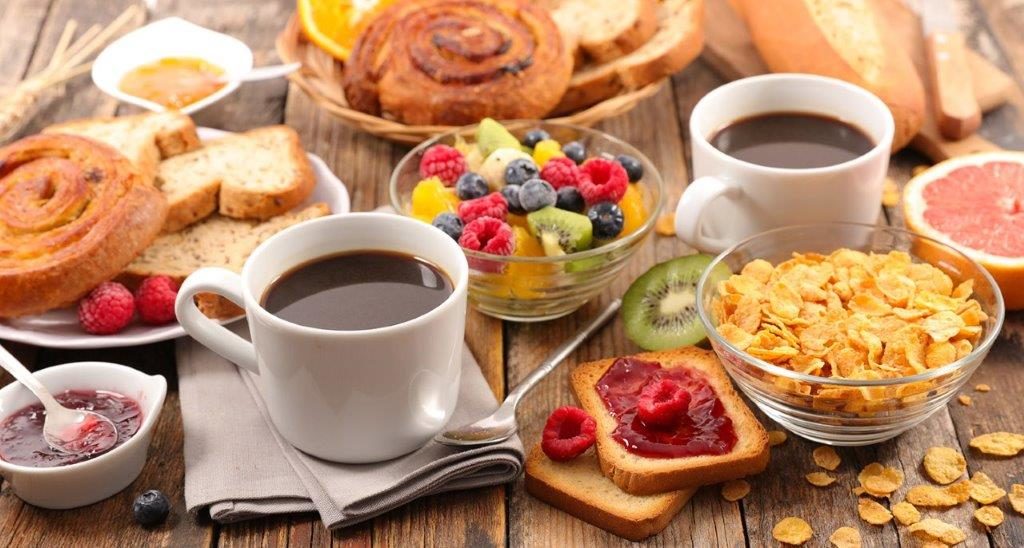
Breakfasts that will set you up for the day
We all know the old saying ‘breakfast is the most important meal of the day’ – so why is it so common to feel ravenous again by 10am, or to skip breakfast altogether? Of course, there are lots of reasons, but some of the most familiar are a lack of time and poor breakfasts that don’t really set you up for a busy day.
The good news is that both these things are fixable – especially the latter! In fact, by making your breakfast more exciting, you can actually feel fuller for longer, making you less prone to diving into high-sugar snacks during the day, and even helping you not to overeat at lunch and dinner. In this way, a good breakfast can help keep you a healthy weight.
Of course, in busy modern life, fitting in more than a few mouthfuls of cereal can be tricky – but by making some small changes, it is possible. Try getting up ten minutes earlier or, if you really can’t bear to sacrifice your sleep, do a few of your morning chores – like picking out what you’ll wear to work that day or making your lunch – the night before.
For those who don’t eat breakfast, getting used to eating in the morning takes a little time – but the benefits certainly make it worth it. Eating a decent breakfast will help you face the day with more energy and better concentration. Just start with something small and let your body gradually adjust.
Building blocks of a healthy breakfast
So, what’s the difference between a breakfast that sets you up for the day, and one that doesn’t? Let’s take the example of a standard breakfast cereal – these are typically high in carbohydrates and, all too often, packed with sugar. This high level of sugar might give you a short-term boost, but it’ll soon be followed by a dip in energy and hunger cravings.
A breakfast that will sustain you for longer is more balanced. There are, of course, healthy cereals – ones with no added salt and sugar, and that are packed with fibre – that can be a really beneficial part of breakfast.
According to the UK’s National Health Service (NHS), an ideal breakfast will contain:
- a little fruit or veg
- wholegrain starchy foods (such as bran-rich cereal or wholegrain toast)
- dairy, such as low-fat milk or low-fat, low-sugar yoghurt
- non-dairy protein, such as eggs, beans, meat, nuts or fish
To stay fuller for longer, high-protein breakfasts are best.
Porridge
Porridge is a great way to start the day – especially in the winter and early spring when a hot breakfast that’s quick to prepare is exactly what you need to ward off the cold. Plus, porridge is one of the best possible breakfasts when it comes to setting you up for the day – it releases energy slowly and keeps your blood sugar levels stable, making you feel fuller for longer.
For the healthiest porridge, make it with semi-skimmed or skimmed milk, and don’t add a lot of sugar or syrups. If you need a little sweetness, try stirring through some fresh berries.
Muesli
Another great oat-based breakfast is muesli. If you’re buying your muesli in the shops, check the packet carefully and pick one with no added sugar.
However, it’s easy – and usually cheaper – to make your own. Plus, this has the added benefit of allowing you to include exactly what you like. Simply mix oats with your choice of wheatgerm or bran, dried fruit, such as dates, raisins and chopped apricot, pumpkin and sunflower seeds, and nuts such as almonds or walnuts. Seeds and nuts are particularly good for keeping hunger pangs at bay, as they’re full of protein and packed with healthy fats.
Yoghurt, fruit and wholegrain toast
If porridge and muesli don’t appeal to you, but you like the idea of a relatively light breakfast that’s simple to make and keeps you full, try a mix of yoghurt, fruit and toast. This combination is a great way to set you up for the day, provided you are careful with what you pick. A low-fat, sugar-free Greek yoghurt is much healthier and more filling than a flavoured, sweetened one, for instance. Toast, meanwhile, should be wholegrain for the added bulk and nutrients the grains provide.
Cooked breakfast
The traditional full English breakfast isn’t healthy in its usual fried state – but it’s surprising how a few quick changes can transform it into a nutritious feast. For instance, simply baking or grilling the ingredients reduces the fat content dramatically, while foregoing sausages or switching to lower-fat versions will also make a significant impact. Eggs, meat and beans all contain a lot of protein, keeping you fuller for longer.





